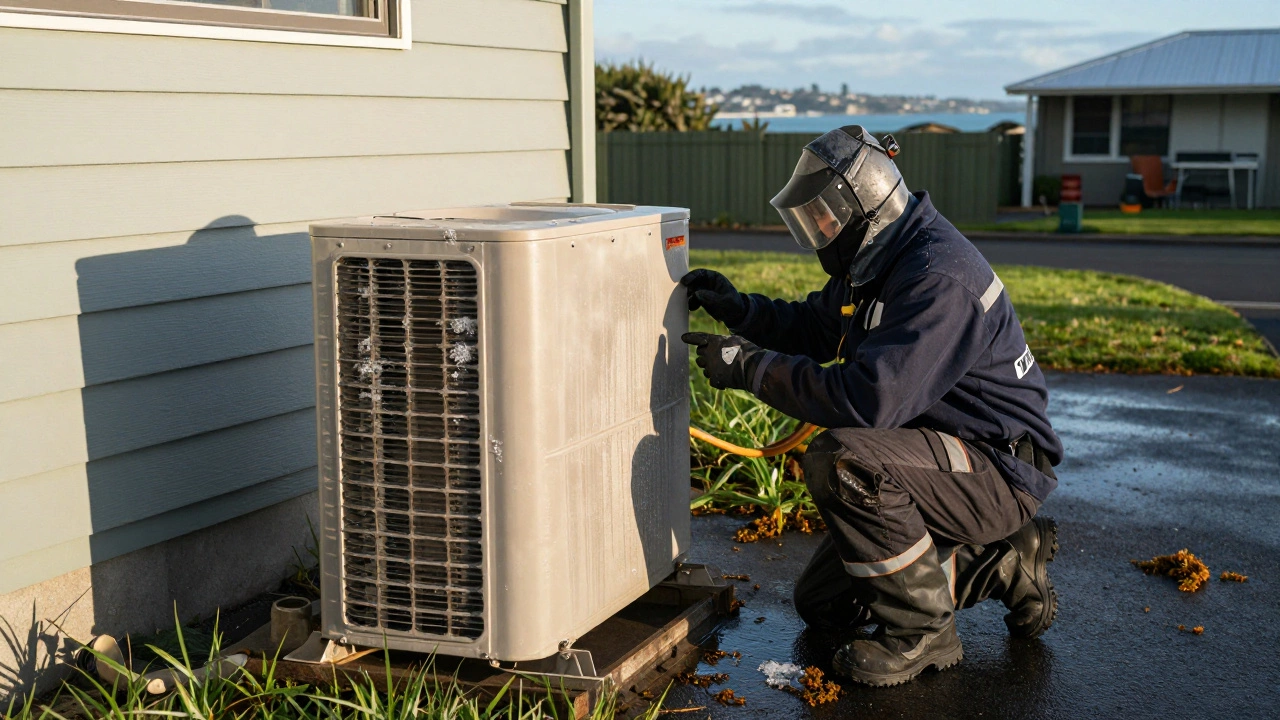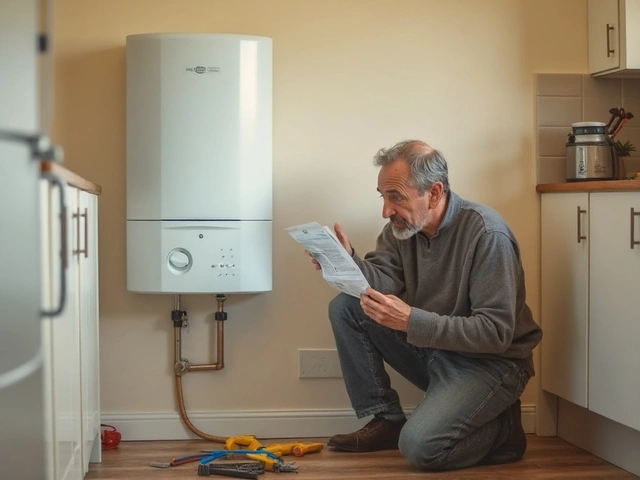Is It Worth Fixing a 7-Year-Old Refrigerator?
February 28 2025Heat Pump Maintenance: Quick Tips to Keep Your System Running Smoothly
If your heat pump is humming but not heating, it’s probably overdue for a check‑up. Regular maintenance isn’t just for big repairs – a few simple habits can keep the unit working efficiently and lower your energy bills. Below are the everyday actions you can take, plus the signs that tell you it’s time to call Bedford’s certified gas engineers.
Monthly DIY Checks
Start with a quick visual inspection once a month. Turn off the power, then look at the outdoor coil. Clear away leaves, grass, or dust that might be blocking airflow. A garden hose on a gentle spray can rinse off stubborn grime, but never use a pressure washer – it can bend the fins.
Next, check the indoor filters. Most heat pumps have a replaceable air filter that can get clogged with dust. Pull it out, tap off excess debris, and if it looks dirty, replace it. A clean filter improves airflow and reduces strain on the compressor.
Listen for odd noises. A rattling sound could mean a loose fan blade, while a high‑pitched squeal often points to a worn motor bearing. jot down when you hear something strange and let a professional know the details – it speeds up diagnosis.
Finally, test the thermostat settings. Make sure the mode (heat, cool, auto) matches the weather and that the temperature set‑point is realistic. Incorrect settings can trick the heat pump into short‑cycling, which wears out components faster.
When to Call a Professional
Even with diligent DIY care, some tasks need a qualified engineer. If you notice any of these red flags, schedule a service with Bedford Gas Appliance Repair:
- Reduced heating output despite a normal thermostat setting.
- Ice building up on the outdoor coil (other than normal frost in cold weather).
- Frequent on/off cycles – the unit should run for a reasonable time before stopping.
- Unusual electrical smells or frequent breaker trips.
- Any water leaks around the indoor unit.
Our certified technicians will check refrigerant levels, test electrical connections, and clean the internal components that you can’t reach yourself. A professional service once a year is usually enough, but older units or those in harsh climates may need a semi‑annual visit.
Don’t forget the seasonal switch‑over. In autumn, you’ll want the heat pump set to heating mode and the outdoor fan cleared of debris before the first cold night. In spring, flip to cooling mode and repeat the cleaning routine to keep the unit ready for summer.
Keeping a simple log can help. Note the date of each filter change, any noises you hear, and the temperature setting you use. When you call us, you’ll have a clear history for the engineer, which often means a quicker fix and lower cost.
Ready to give your heat pump the TLC it deserves? Follow the monthly checklist, watch for warning signs, and book a professional tune‑up with Bedford’s gas engineers before the next season hits. A little effort now saves costly breakdowns later, and you’ll stay cozy while your bills stay lower.
 16 Feb
16 Feb
Are Heat Pumps Expensive to Fix? Real Costs in 2026
Heat pump repairs in Auckland range from $50 for a filter change to over $2,000 for a compressor replacement. Learn what fixes are worth it, when to replace, and how to save money with smart maintenance.
Read More... 29 May
29 May
Heat Pump Running But Not Cooling? Real Reasons and Fixes
Wondering why your heat pump keeps running but your home isn’t cooling down? This article digs into the most common reasons behind this issue, from simple fixes you can do yourself to bigger problems that might need a pro. Spot signs of trouble before they become expensive repairs. Check out helpful tips on maintenance and efficient operation. Stop sweating—get straightforward answers on what to check and what to do next.
Read More...



